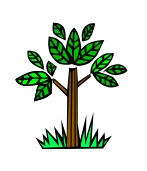Solomon Islands Peace Education Curriculum
In the aftermath of five years of civil unrest in Solomon Islands during the late 1990s, educational institutions, the National Peace Council, and NGO leaders expressed a need to build capacity in educational and community settings to teach peace building concepts and skills. This curriculum, subtitled “Come Together, Talk Together, Work Together” is one example of the work being done. The content was prepared in response to interviews of nearly 50 community leaders, educators, young people, and NGO representatives in Solomon Islands in 2004. The content and skills of the highest priority identified by these stakeholders included:

• Understanding rights and responsibilities
• Understanding cultural diversity
• Restorative justice and reconciliation
• Gender relationship skills
• Ability to live with change
• Leadership qualities
• Conflict prevention
• Traditional definitions of peace
• Understand interdependence between individuals and society
• Respect different cultures
These content and skill areas have been incorporated into the curriculum, which consists of four units. All of the conflict scenarios that serve as the basis for skill exercises have been drawn from examples that educators, community leaders and young people provided during interviews. “COME TOGETHER, TALK TOGETHER, WORK TOGETHER” Practicing Peace: A Peace Education Module for Youth and Young Adults in Solomon Islands (UNICEF May 2005) should prove interesting and inspiring to peace educators.
Practicing Peace: A Peace Education Module for Youth and Young Adults in Solomon Islands (UNICEF May 2005 – doc format)
Practicing Peace: A Peace Education Module for Youth and Young Adults in Solomon Islands (UNICEF May 2005 – pdf format)
Practicing Peace Curriculum Activites Organized by Educational Standard (doc format)
Practicing Peace Curriculum Activites Organized by Educational Standard (pdf format)
